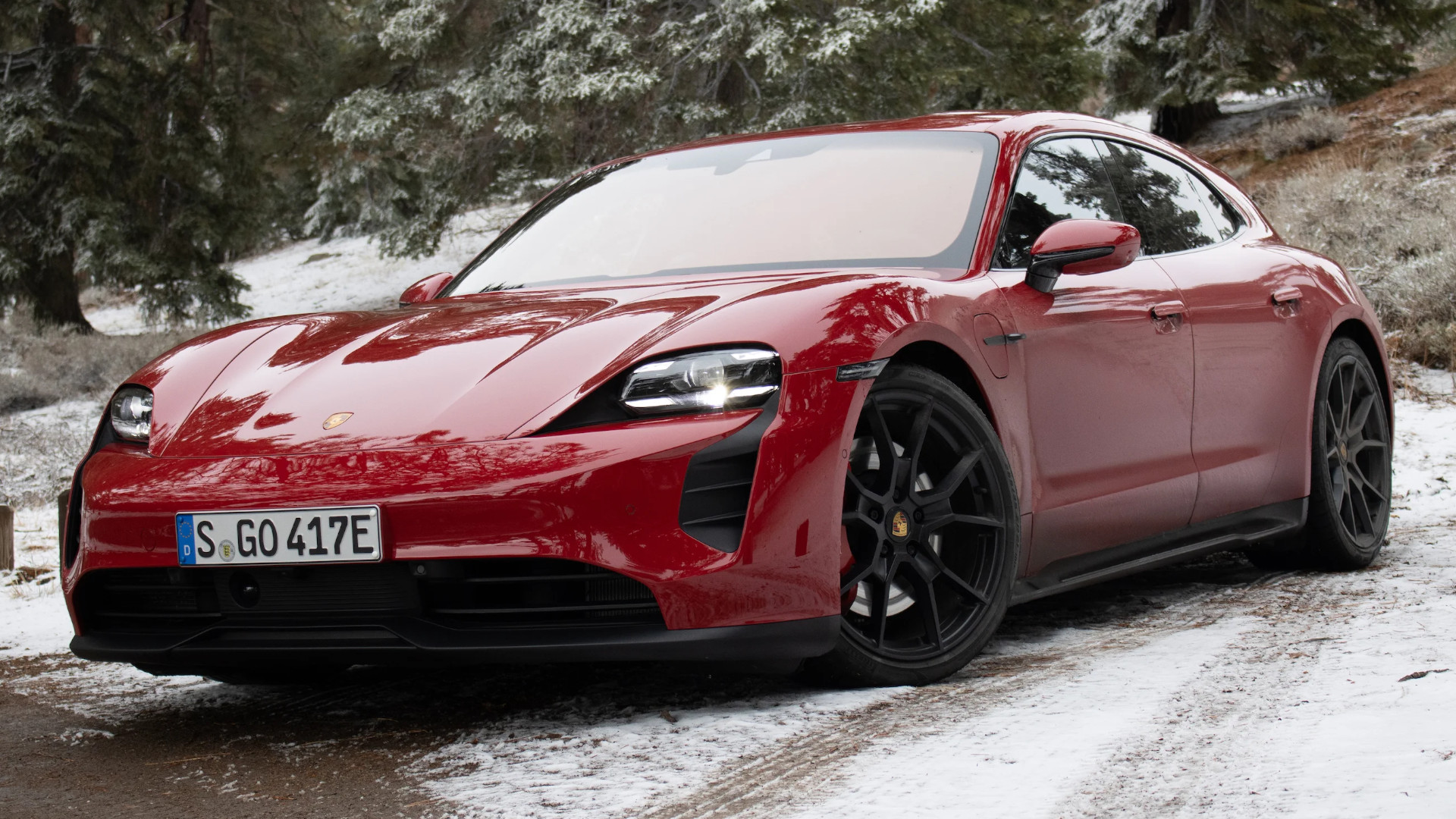

We may earn revenue from the products available on this page and participate in affiliate programs. Learn more ›
In a modern EV, the battery is one of the most expensive components in the car. Protecting it from harm is thus a primary concern for automakers. Porsche and Audi have recently tripped up on that front, leading to a recall to rectify the problem.
As covered by Elektrek, the recall concerns Porsche Taycan and Audi e-Tron GT models from the 2023 model year. The issue concerns the sealing of the battery, which can allow potentially damaging water intrusion to occur. In these cases, affected vehicles may display a warning message due to the risk of damage caused by liquid entering the battery. Affected cars were built from September 23, 2022 to August 25, 2023. The recall concerns 4,777 Taycan models and 1,899 e-Tron GTs, with the companies expecting roughly three percent of that population to be subject to the water ingress issue.

Liquid ingress poses a serious risk to an electric vehicle’s battery. It can cause internal arcing with the potential to cause a “thermal event,” which can involve overheating or even a battery fire. It can also cause corrosion to internal battery components which could lead to damage over a longer time period.
The issue first came to light in 2022, when Porsche and Audi identified a limited number of cases where reduced insulation resistance values suggested liquid could be entering the batteries of certain vehicles. This prompted the battery supplier, Dräxlmaier Group, to introduce a new Teroson brand sealant in September last year to try and improve the robustness of the battery’s seal.
Testing and monitoring of the situation continued. The automakers received multiple reports of vehicles with the Teroson sealant suffering from liquid intrusion into the battery. In affected vehicles, liquid entering the battery caused a reduction in the insulation’s resistance value, which triggered warning messages on the dashboard. Upon examining affected vehicles in the workshop, liquid was detected inside the battery in multiple cases. Thankfully, none of the affected vehicles suffered a fire or thermal event.
This prompted the introduction of an improved Teroson sealant in May this year. This sealant has thus far proven to resist liquid intrusion appropriately. However, some cars produced after this date would still receive batteries produced using the initial Teroson sealant, which has not met the automaker’s standards in service.
Porsche and Audi will leak test affected vehicles to determine if they are at risk of liquid entering the battery. If the testing reveals potential for leakage, the battery will be replaced with a new one featuring the enhanced Teroson sealant. Repairs will be handled under warranty as all cars affected are still within the new car warranty period. The automakers expect to send out notifications to owners by October 31.
Sealing a battery may seem simple, but getting it right in a manufacturing context can be challenging. The right sealing materials need to be selected, applied perfectly, and given the exact right amount of curing time. This needs to happen for every unit that passes through the factory, often in the tens or hundreds of thousands. Automakers generally get it right, but when they don’t, that’s where the recall system comes in.
Got a tip? Let the author know: lewin@thedrive.com
